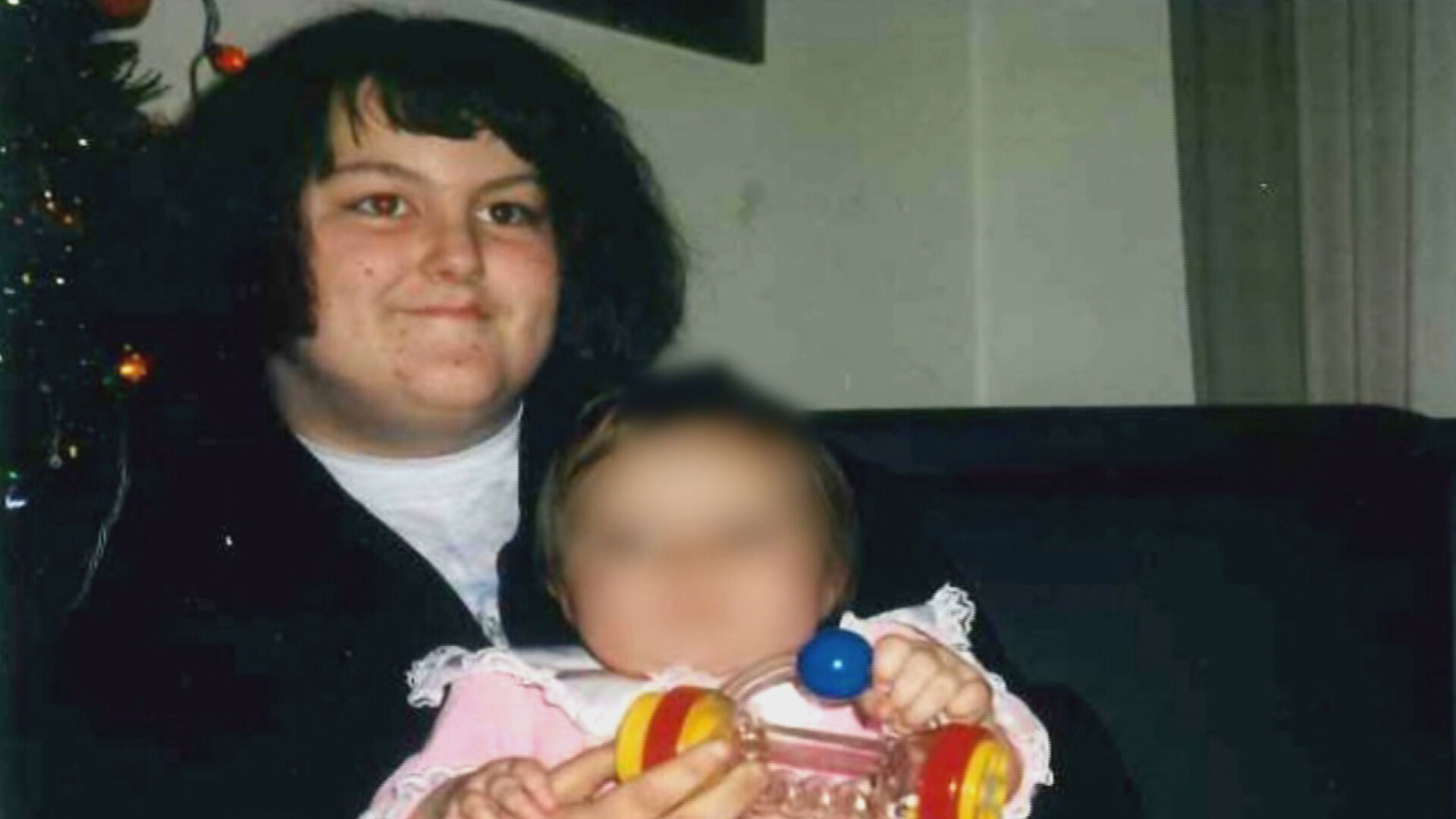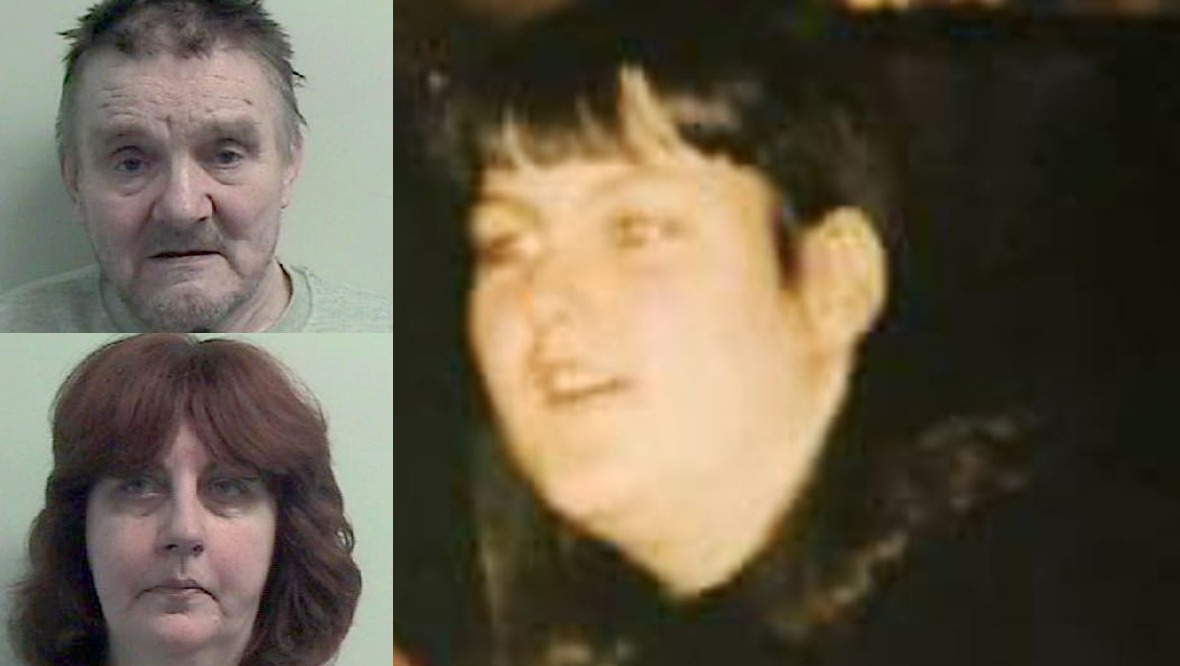A vulnerable woman murdered by her carers more than two decades ago was found to have been failed by breakdowns in communications between multiple agencies involved in her life.
Professor Jean MacLellan OBE, director of Autism Network Scotland, led the Significant Care Review (SCR), which included all the agencies that were involved with Margaret Fleming and has provided a detailed examination of the events leading up to her tragic death.
In June 2019, Edward Cairney and Avril Jones were found guilty of killing Ms Fleming at their house in Seacroft, Inverkip, at some point between December 18, 1999, and January 5, 2000.
The review was published the day after Cairney’s death in custody was confirmed by the Scottish Prison Service.
Ms Fleming, who had learning difficulties, had not been seen for 20 years and lived in “disgusting and uninhabitable” conditions when she stayed with her killers.
The pair were found guilty of tying her up, cutting her hair short and depriving her of food before eventually murdering her.
Ms Fleming’s body has never been found.
The recommendations of the review which was published by Inverclyde council entitled Remember My Name.
Agencies, including the Department for Work and Pensions, Education, Health, Children and Families, Adult Care and the Police acknowledged that there are aspects of its practice that fell short.
Years of benefits payments made without seeing Margaret is ‘difficult to comprehend’
 Handout
HandoutThe review said that there continued to be missed opportunities after Ms Fleming had died but before this became known to the authorities and that the agencies accepted that there are elements of performance that can be improved and have been progressing those aspects on an ongoing basis.
It said: “as with many other reviews, there is clear evidence of inter-agency communication breakdowns. Collectively they accept that inter-agency, multi-disciplinary information sharing, assessment, delivery and evaluation can and should be progressed further.”
The report said that 16 years worth of benefits payments made without seeing Ms Fleming was a “stark fact difficult to comprehend”.
‘See something, say something’
 Handout
HandoutDifficulties with transitions from school to higher education were highlighted during the inquiry, with colleges and universities being encouraged to have “robust adult protection guidance”.
In its findings, it recommended that all agencies involved in the care of vulnerable people are required to understand how to share information timeously to ensure vulnerable people are protected.
It added that checks and balances should be in place that balance people’s rights to privacy with a clear need to protect vulnerable people who need to be seen by agencies and this includes benefits agencies.
Expansion of annual health check for adults with learning disabilities should be considered, the report added.
 Police Scotland
Police ScotlandAn audit through the Further Education Safeguarding Forum should take place across Scotland and as a society, it proposed, adding that “everyone has a responsibility to ensure that people with disability are seen and protected”.
Each local authority should be clear on their mechanism to hear the views of people with learning disabilities and understand the local provision which should be mapped out and made publicly available, it was recommended.
The review also concluded that Ms Fleming should be remembered and the local authority should consider how this can be done in a manner which is respectful to her family.
‘Tragic death that shook Scotland’
Alex Davidson, chair of the Adult Protection Committee, said: “The death of Margaret Fleming and the tragic events that led to her death shook not only the local community but the whole of Scotland.
“This wide-ranging and in-depth review provides learning for all agencies involved in Margaret’s life to ensure lessons are learned from the circumstances that led to her death and, as the title says, honours and remembers Margaret.
“It is now up to each agency to consider the findings and take those forward but what is clear to me from the review is that agencies need to talk across the fence to each other when it comes to partnership working and information sharing to ensure vulnerable people are seen in person while respecting their right to privacy.
“See something, say something. If something doesn’t seem right, it probably isn’t and there should be a multi-agency response to that. The same applies to society in general and we have a collective responsibility to look out for each other and speak up if something doesn’t seem right.”
Professor MacLellan’s statement in full
Professor MacLellan spoke to more than 100 people, including Ms Fleming’s family and friends, during the course of the wide-ranging review and a series of recommendations have been made for all agencies involved to consider and look to implement.
Professor MacLellan said: “For many of us, what we know of Margaret’s life is what was covered in the televised trial and subsequent media coverage of her murder which, by its nature, highlighted the trauma of her experience. This review had a different emphasis. It was to understand what we could about who she was and what the agencies that had been involved with her and her family had offered.
“Inverclyde recognised the challenges of doing this well given that so many years had passed since Margaret died. So it was agreed that an Appreciative Inquiry approach would be adopted. This meant that staff committed to being active in finding any records relating to Margaret. The disciplines spoke freely to each other about what they found.
“It was openly acknowledged what could be improved and staff have set about doing so well in advance of the publication of this report. Readers can access much of this material on a dedicated website for training and learning purposes. My role has not been a top down, external, one but as part of this dedicated team. I am grateful to them all. This approach has much to commend it.
“Like others, I would like to thank Margaret’s mother whom I have come to know well. She is a private individual who is entitled to remain so. She has co-operated wholeheartedly with the review and will be forever impacted by her daughter’s death. I would also like to thank Margaret’s father’s fiancée and her daughter for their substantial contribution to our collective understanding.
“My last comments relate to the many people with learning disabilities and carers, locally and across Scotland, who participated in the review. Their testimony appears in detail on the website too and vividly describes life in Scotland now. This aspect is Margaret’s legacy and is for the Margarets of today and the Margarets of the future.”
Follow STV News on WhatsApp
Scan the QR code on your mobile device for all the latest news from around the country





























